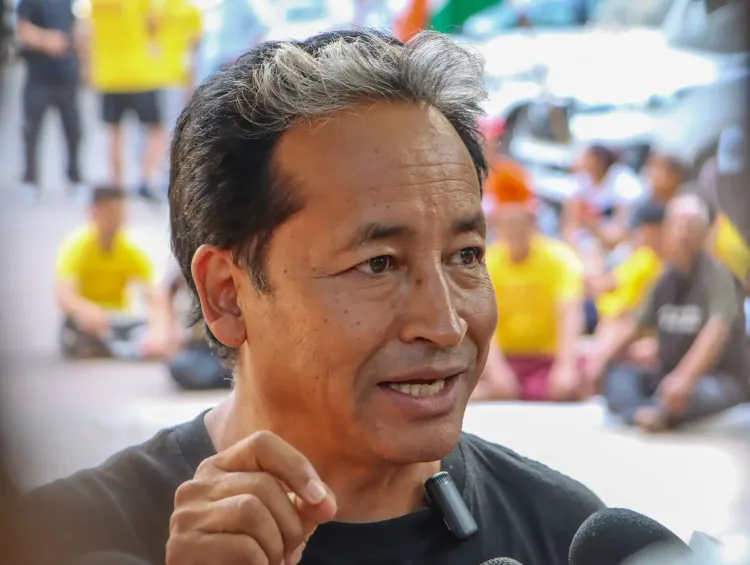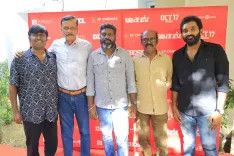Will the Supreme Court Hear the Plea Against Sonam Wangchuk's Detention Today?

Synopsis
Key Takeaways
- The Supreme Court is set to hear a significant plea regarding the detention of climate activist Sonam Wangchuk.
- Wangchuk’s detention is justified by the Leh administration under the National Security Act.
- Senior advocate Kapil Sibal represents his wife, Gitanjali J. Angmo, in the case.
- The case raises important questions about the balance between national security and civil liberties.
- Public response and implications for activism in India are critical to watch.
New Delhi, Oct 15 (NationPress) The Supreme Court is set to continue hearings on Wednesday regarding a plea submitted by Gitanjali J. Angmo, the spouse of climate activist Sonam Wangchuk, contesting his detention in Leh.
According to the causelist available on the apex court’s website, a bench led by Justices Aravind Kumar and N.V. Anjaria will review the case. The hearing was previously postponed to October 15 at the request of senior advocate Kapil Sibal, representing Angmo.
Earlier, the apex court issued a notice, seeking responses from the Union government and other relevant authorities. In an affidavit to the Supreme Court, the Leh administration justified Wangchuk’s detention under the National Security Act (NSA), asserting that the decision was made “lawfully” after careful examination of pertinent information.
The District Magistrate of Leh, Romil Singh Donk, mentioned that the detention order was issued on September 26 after he was “satisfied and continues to be satisfied of the detention of the detenue,” based on activities deemed “prejudicial to the security of the state, maintenance of public order, and essential community services.”
“The order of detention was issued by me after carefully considering the evidence presented, as required by law, and after arriving at a subjective conclusion on the prevailing circumstances in the jurisdiction where Mr. Wangchuk had been engaging in actions detrimental to the security of the state, maintenance of public order, and essential community services, as noted in the grounds for detention,” the affidavit read.
In response to allegations of illegal detention and mistreatment, the Leh administration called the petitioner’s claims “baseless,” asserting that the detention was executed “in strict compliance with procedural safeguards under Article 22 of the Constitution and Section 8 of the NSA.”
The affidavit highlighted that Wangchuk and his family were promptly notified of the detention and his transfer to Jodhpur Central Jail on the same day.
“Authorities duly informed the wife of the detainee regarding the detention and its location,” the affidavit stated, mentioning that a press release about the detention was issued on September 26.
Furthermore, it noted that the grounds for detention were communicated to Wangchuk on September 29, within the mandated five-day timeframe as per Section 8 of the NSA, and that he acknowledged receipt with his signature.
“Thus, all claims regarding the detainee or the petitioner not being informed of the detention order under the National Security Act, 1980, are completely false and misleading,” the affidavit concluded.
The affidavit also stated that Wangchuk underwent multiple medical examinations and was found to be “medically and physically fit.”
Wangchuk indicated to the medical officer that he was “not on any medication.”
It was also noted that “nearly two weeks have passed since his detention, yet no representation has been made by Mr. Sonam Wangchuk to the detaining authority regarding his detention,” although his wife sent a letter to the President and not to the Advisory Board or any statutory authorities.
The affidavit asserted that all procedures under the NSA were followed promptly and that the Advisory Board was properly constituted.









